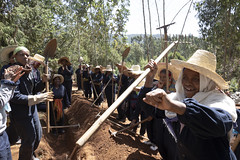Jobs Interventions for Young Women in the Digital Economy
This Jobs Solutions Note identifies practical solutions for development practitioners to proactively integrate gender inclusion in digital jobs programs. Based on curated knowledge and evidence for a specific topic and relevant to jobs, the Jobs Solutions Notes are not intended to be exhaustive; they provide key lessons, solutions and approaches synthesized from the experiences of the World Bank Group and partners.




